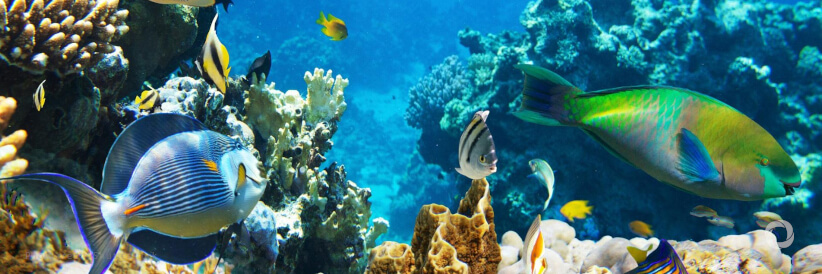UN member states must agree this year on how to protect and manage the high seas, which cover half the planet. The high seas play a vital role in supporting fisheries, providing habitat for hundreds of thousands of species, and mitigating climate change impacts, but are currently severely underregulated resulting in widespread exploitation.
WWF calls on UN member states to agree on an ambitious, legally-binding global treaty to protect marine life in the two-thirds of the ocean that lie beyond national jurisdiction when they meet at the fifth session of the Intergovernmental Conference this August.
“The high seas epitomize the tragedy of the commons. Because they don’t ‘belong’ to anyone, they have been treated recklessly with impunity. We need a common governance mechanism for our ocean to ensure that nobody’s waters become everybody’s waters – and everyone’s responsibility,” said Marco Lambertini, Director General, WWF International.
“Fifty nations have already pledged to achieve an ambitious ocean treaty that would lay the groundwork for protecting 30% of the ocean and assess the environmental impact of activities on the high seas. We call on remaining UN member states to do the same and bring home a resounding result after years of negotiations. Leaders must deliver a robust and equitable biodiversity treaty for the high seas that can help us reverse nature loss this decade and secure, for all, a healthier and sustainable future.”
The ocean treaty can be a game changer in protecting the exceptional natural values of the high seas and building the resilience of economically important fisheries. But this requires negotiators to step up significantly to heed global ambitions.
Global ambitions to protect 30% of our ocean by 2030 cannot be achieved without a framework to designate and manage protected areas beyond national jurisdiction. The ocean treaty under negotiation aims to spell out for nations, through a robust and equitable governance mechanism, how to conserve and sustainably use the shared resources of the high seas.
At the same time, such a mechanism can benefit those who depend on fishing for food security and livelihoods by putting in place restrictions in protected areas that prevent overfishing and other destructive practices, paving the way for healthier fish populations.
The ocean absorbs more than 90% of the world’s excess heat caused by human-induced global warming, and this stressor is exacerbated by overfishing and pollution. A robust ocean treaty can mitigate some of these threats and give our ocean, the planet’s largest carbon sink, a chance to recover.
For the new treaty to live up to its game-changing potential, WWF is calling on negotiators to resolve the key issues, namely providing for enhanced cooperation; ensuring the designation and monitoring of marine protected areas on the high seas; subjecting all planned high seas activities to an environmental impact assessment process; clarifying the choice of the regime for handling marine genetic resources; and putting in place and strengthening capacity-building, technology transfer, and reporting mechanisms.
“The ocean is under pressure from increasing human activities, and a new ocean treaty is essential to alleviate that pressure by ensuring all these activities are managed holistically, with marine biodiversity, ecosystem functions, and services to humanity at its heart. Only then can we set the ocean on a path to recovery and sustainability,” said Jessica Battle, Senior Global Ocean Governance and Policy Expert, WWF.
“Leaving half our planet a poorly regulated free-for-all benefits no one in the end. This negotiating session must aim for the most ambitious compromise attainable. It’s time to set aside self-interest and make the right choices for the future of our ocean, our climate, and our communities.”

